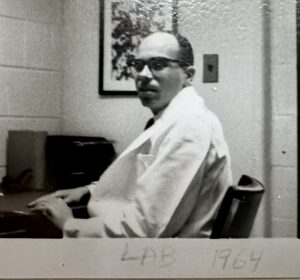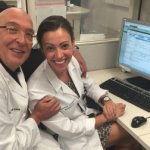 Rheumatologist Arthur Grayzel, MD, excelled as a teacher, researcher and clinician, and he excelled in all three areas while also having a zest for life, according to his family. Dr. Grayzel, an ACR Master, died this past August, living until age 92. He leaves behind a lifetime of helping patients, fellow physicians and students.
Rheumatologist Arthur Grayzel, MD, excelled as a teacher, researcher and clinician, and he excelled in all three areas while also having a zest for life, according to his family. Dr. Grayzel, an ACR Master, died this past August, living until age 92. He leaves behind a lifetime of helping patients, fellow physicians and students.
Following his graduation from Harvard Medical School in 1957, Dr. Grayzel completed a medical internship at Albert Merritt Billings Hospital of the University of Chicago Medical Center and a residency in internal medicine at Jacobi Medical Center in the Bronx, New York. He went on to do research at the National Institutes of Health and then completed a rheumatology fellowship at the Manchester Royal Infirmary in Manchester, U.K.
In 1964, he returned to the U.S. to work as a rheumatologist and researcher at the Albert Einstein College of Medicine in the Bronx, where he eventually became a professor of medicine. His research at Einstein focused mostly on the immunology of systemic lupus erythematosus and rheumatoid arthritis (RA).
Dr. Grayzel also had a strong interest in work that would help improve patients and their quality of life, which led him to become senior vice president for medical affairs at the Arthritis Foundation. He then went on to work in a similar position at the Sjögren’s Foundation. Throughout that time, Dr. Grayzel maintained longstanding participation on the Institutional Review Board at Einstein.
Dr. Grayzel retired in the mid-2000s.
A Family Inspiration
In addition to inspiring patients, students and his peers, Dr. Grayzel also inspired his children’s career paths.
Dr. Grayzel had three children—David, Jonathan and Sue—and his two sons also became physicians. Sue is a professor of modern European history at Utah State University. Their mother, Estherann, also became a physician in the 1950s, when there were not many women in the profession. She specialized in primary care and endocrinology.
David Grayzel, MD, a partner with Atlas Venture, a biotech venture capital firm in Boston, recalls being at the kitchen table and listening to his parents discuss medical cases. “It just always struck me as nothing odd about it. I grew up with it,” he says. He says his interest in medicine follows that of many other future physicians, including wanting to follow intellectual passions while also having a career that could improve the lives of others.




